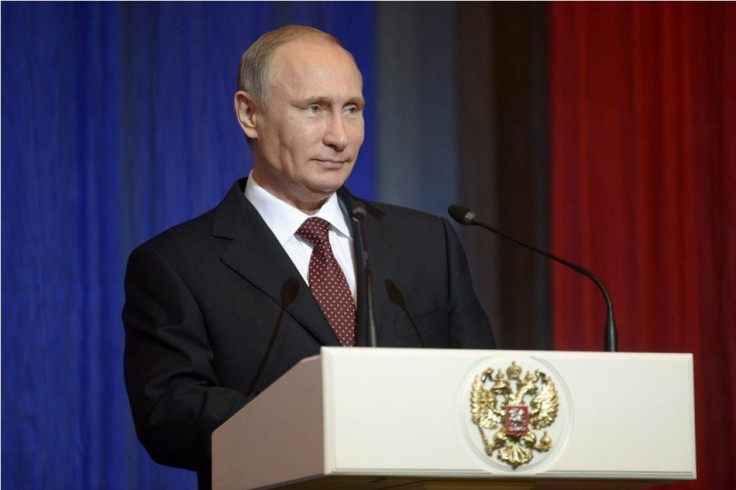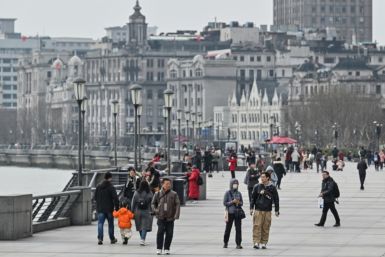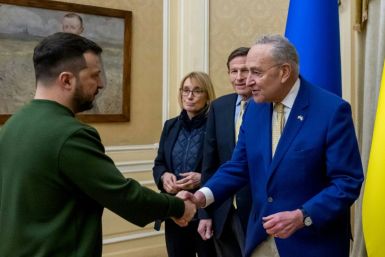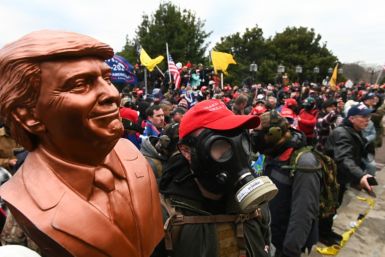Russia’s Ruble Crisis May Weaken Putin’s Grip On Power

The collapse of the Russian ruble is threatening not only Russia's economic future but also rattling the future of its President Vladimir Putin. The Russian strong man was caught unawares in a full-blown currency crisis that is now defying the conventional remedies including rapid hikes in interest rates but showing signs of becoming a precursor to biting recession.
The ruble had a free fall on Tuesday and triggered fears of a potential meltdown in emerging markets. The ruble lost 11 percent against the dollar on that day, which had the steepest fall ever recorded in a single day, since the Russian financial crisis in 1998, reported Reuters.
Crumbling Support
Many feel the currency crisis has started alienating Putin's core support base and will weaken his iron grip on power. Despite the efforts of crisis managers to shoot up interest rates from 6.5 percent to 17 percent overnight, the tumbling ruble could not be salvaged before it plunged into record lows. The result is, Russia has a long battle in hand with a diverse range of economic ills that include low oil prices, looming recession and Western sanctions over the Ukraine crisis.
A Bloomberg report captured the sombre mood on Russia, echoed through the views of a few analysts. "This is a moment of truth for Putin", said Masha Lipman, a political analyst in Moscow. "It's no longer possible to go on in the same fashion. The economy is tumbling. The time has come for a definitive choice, doing nothing won't solve the problem," Lipman said. There is fear that the hike of interest rate to 17 percent from 10.5 percent will only crush the lending to households and businesses before worsening Russia's looming recession, according to Neil Shearing, economist at London-based Capital Economics.
Lessons From Past
Putin has the examples of his predecessors to look up. They all lost empires whenever the economy crumbled. Boris Yeltsin resigned after a financial crisis shook his regime and Soviet leader Mikhail Gorbachev started losing the grip on power after the economy slowed, a Reuters report noted.Now, some of the hard options before Russia include, arresting the impending capital flight through capital controls. This is because the government cannot afford to keep drawing on gold and foreign currency reserves to prop up the ruble. The reserves have sunk to $416 billion compared to $509 billion at the start of the year. The hopes on a sharp rise in oil price are also dashed as it is currently trading below $60 a barrel. It must be around $100 at least, for the state budget to maintain a balance.
Marginal Gains
Meanwhile RFERL reported that there is some relief for ruble after a steep slide, which brought the Russian currency's exchange rate as low as 80 per U.S. dollar. The marginal recovery from "Black Tuesday" happened after the Finance ministry's efforts to shore up the currency by selling foreign currency. Svetlana Nikitina of the ministry said "considering that ruble is extremely undervalued we are starting to sell leftover currency on the market."
Russian authorities also eased accounting rules to curb the need for dollars by various banks. This was to allay the panic that the ruble's plunge will lead to a full-blown financial crisis. The ruble and stocks made a nominal recovery after the Bank of Russia announced the measures, said a Bloomberg report. Under the new relief measures, banks can use the third-quarter exchange rate in valuing risk-weighted assets. The Russian Bank also imposed a moratorium on mark-to-market accounting. According to Bloomberg, Russian companies are locked in a $20.3 billion in non-ruble loan with debt repayments requiring closure before March 2015.






